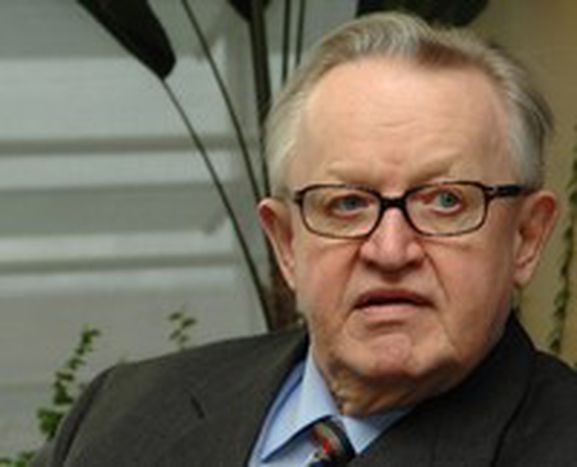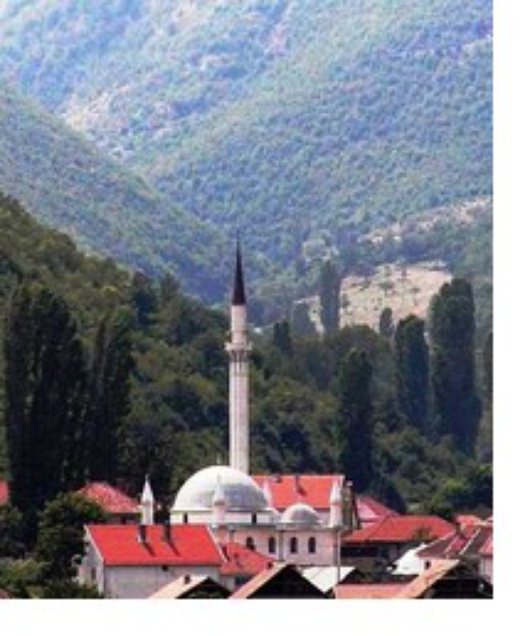
Impending independence?
Published on
Translation by:
Nabeelah ShabbirIndependent from or autonomous within Serbia? Negotiations on Kosovo’s future status wound up in March
Serbian president Vojislav Koštunica had always put 2014 as the date that Serbia and Kosovo enter the European Union; it’s a date marking the 100th anniversary of the beginning of World War One.
Should Kosovo and Serbia enter the European Union together or not? In the UK’s ‘Guardian’, British journalist Timothy Garton says the question rests on strategy: the 'only way the Ahtisaari plan is going to work is if both Serbia and Kosovo are brought into the European Union, along with their neighbours in the Balkans.’
Until now it’s unclear how Europe’s member states feel about an independent republic of Kosovo. Aleksander Miti, chief analyst at the Institute 4S in Brussels (a think tank on Serbia's integration in Europe), fears that it ‘would certainly open a Pandora's box of separatist causes worldwide.’ I4S's multimedia CD-Rom ‘Kosovo 2006’ favours an autonomous Kosovo within Serbia. ‘For the first time since World War Two a democratic country sees itself forced to give up a part of its territory against its will and against international rights,’ says Miti on Serbia’s difficult position.
De facto independence
 Martti Ahtisaari, the UN’s Special Envoy for Kosovo, has come up with a blueprint for Kosovo’s future. The document supports a de facto independence, even though the region would officially still belong to Serbia. It would have its own democratic government, a constitution, a flag and its own hymn, an independent parliament and its own nationality.
Martti Ahtisaari, the UN’s Special Envoy for Kosovo, has come up with a blueprint for Kosovo’s future. The document supports a de facto independence, even though the region would officially still belong to Serbia. It would have its own democratic government, a constitution, a flag and its own hymn, an independent parliament and its own nationality.
‘Negotiations on international agreements and membership to supranational organisations’ also count as part of Kosovo’s sovereignty package. The fact is, that nine out of ten Kosovans are ethnically Albanian, and only 5% are Serbs. They are rejected not only by Serb president Boris Tadi, but also the supporters of the Kosovan independence movement. But Kosovo’s government in Priština has already given its blessing to the document.
In her office in Paris’s Europe information offices, Shpresa Bushi, cultural production manager, explains the challenges that Kosovo face. ‘I doubt that Kosovo is ready for an independent government,’ says the 32-year-old Albanian Kosovan. ‘The UN’s roles was more than paternal, it was almost colonial. However memories of the war are too fresh to make staying within Serbia acceptable.’
Thank-you-Tony-Blair
Bushi goes back home three times a year. On the walls of houses in Priština, you can still trace out thankyou messages to Tony Blair, she says. In 1999, the British prime minister was the biggest supporter of the NATO-bombardment of Belgrade, when the Albanians had to defend themselves against the Serbs. Today, Miti maintains that the ‘United Kingdom is the biggest defender of an independent Kosovo in Europe.’ Moreover, NATO is supporting the negotiations in Vienna on Ahtisaari’s recommendation.
But in the EU there are also countries who find Kosovo far, far off, such as the Baltic states, Portugal and Spain. They are sceptical about an independent Kosovo. Although the EU supports Ahtisaari’s plans, Miti says that the ‘sceptical countries have insisted that the Security Council have the last word if Albanians and Serbs don’t come to an agreement.’
Separatism lives
If the EU fully support Kosovo’s independence, they’ll likely meet with difficulties. Russia has previously announced that they would vote against independence in the Security Council. ‘It would be difficult to put pressure on Russia, since Europe’s independence from Russian oil and gas,’ headlined Russian newspaper on February 19.
In addition, Russia is also always linked to the countries of the former Eastern bloc. The citizens of the Moldovan region of Transnitria decided in a referendum against membership in the Moldovan Republic. They preferred to belong to Russia. What happens, when Russia supports these countries? The Hungarian minorities in Romania and Slovakia obviously then demand more autonomy. Slovakian president Gaspanovic, who rejected UN Kosovo plans, saying they are detrimental to Serbia.
Independence movements are dogged and the fear amongst European states is that Kosovo’s dissociation from Serbia could provoke a separatist stream in their own land. At the last NATO summit, Spanish Interior Minister José Antonio Alonso indicated that Kosovo could not be compared with the Basque country, but didn’t offer any enlightenment on why. ‘Greeks and Greek Cypriots recognise Serbia as an important actor on the Balkan stage. And even the Polish president has spoken out against Kosovo’s independence,’ adds Miti.
Reality in the EU
However Austrian Albert Rohan, Ahtisaari’s right-hand man, sees ‘no realistic alternative’ to the UN’s proposal. Europe’s already has its models of parallel independence desires, such as with Scotland in the UK, Wallonia and Flanders in Belgium and the ongoing autonomy of the Basque country and Navarre in Spain. ‘The problem,’ says Bushi, ‘is that Kosovan Serbia is not seen as a democratic country.’ From a pessimistic perspective, it is also possible that Ahtisaari’s plans don’t change the status quo.
*The Institute 4S (Symbol of Serbian Synergy Scope) is a Brussels-based non-profit, non-governmental organization, with the aim of integrating Serbia in the EU
**Transnitria: Region between the Moldovan Republic and the Ukraine. In World War II it was under German and Romanian rule. The 2006 referendum was recognised by Russia, but not by the Organistion for Security and Co-operation in Europe (OSCE)
Translated from Kosovo, precedente secesionista para el resto de Europa



